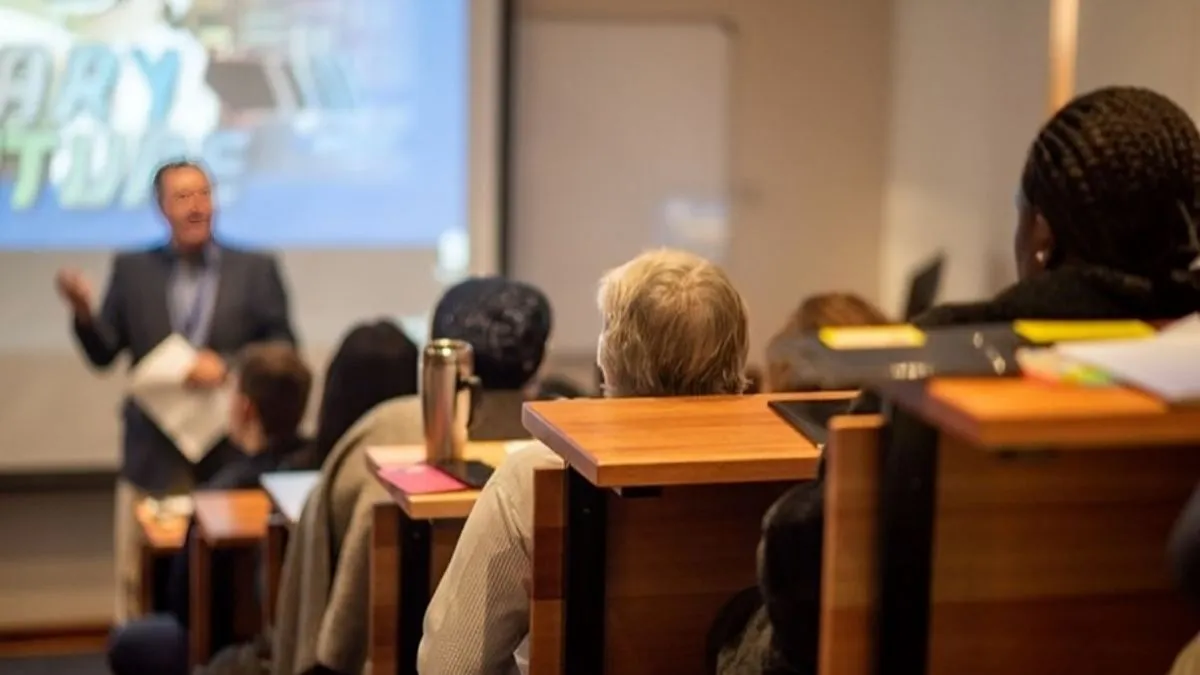EDUCATION
6 Ways to Improve the Quality of Higher Education

Higher education is a cornerstone of modern society, empowering individuals with the knowledge, skills, and critical thinking required to drive innovation and social advancement. As the demands of the global workforce evolve and the expectations of students shift, universities and colleges must adapt to maintain and elevate the quality of education they deliver. Ensuring excellence in higher education is not only a matter of institutional prestige—it is essential for societal progress.
In this article, we explore six effective strategies that institutions can adopt to improve the quality of higher education, providing better outcomes for students, educators, and society as a whole.
Fully Embrace Technology-Enhanced Learning
We’re well past the point where digital tools are seen as “nice to have.” They’re essential. From online lectures and interactive modules to AI-powered tutoring and virtual labs, technology can create more flexible, engaging, and accessible learning experiences for students of all backgrounds.
It’s not just about moving classes online, either. The goal should be to use tech to enhance learning—think smart grading systems, adaptive learning paths, and tools that give real-time feedback. When used well, technology can help educators personalize education and give students more control over how they learn.
2. Invest in Faculty Development
Quality education begins with quality educators. Faculty members must continuously update their knowledge and teaching skills to stay aligned with current trends, technologies, and pedagogical practices. Institutions should offer robust professional development programs that include workshops, conferences, certifications, and sabbaticals.
Mentorship opportunities and collaborative research initiatives can also encourage faculty growth and innovation. Furthermore, promoting diversity among academic staff and fostering a culture of lifelong learning can enrich the curriculum and ensure a more comprehensive educational experience for students.
3. Strengthen Curriculum Relevance
An outdated or overly theoretical curriculum can disengage students and fail to prepare them for real-world challenges. To improve educational quality, institutions should ensure that their programs remain relevant, dynamic, and aligned with industry demands.
Curriculum development should involve consultation with industry leaders, alumni, and employers to identify skill gaps and emerging trends. Incorporating experiential learning—such as internships, cooperative education, and service-learning projects—can help students apply theoretical concepts in practical settings. Courses should also emphasise soft skills like communication, critical thinking, and adaptability, which are increasingly valued in today’s job market.
4. Foster a Student-Centred Approach
Quality education is not just about teaching; it’s about learning. A student-centred approach places the needs, goals, and feedback of learners at the heart of institutional strategies. This means providing flexible learning options, supporting different learning styles, and creating an inclusive and supportive academic environment.
Academic advising, mental health support, career services, and peer mentoring programs all contribute to student success. Institutions should also seek regular feedback from students through surveys and focus groups, using the insights to make meaningful improvements in teaching methods, course content, and campus services.
5. Promote Academic Integrity and Research Excellence
Academic quality is closely linked to intellectual honesty and scholarly rigour. Institutions must uphold high standards of academic integrity by establishing clear policies on plagiarism, misconduct, and ethical research practices. Promoting a culture of honesty and accountability helps maintain institutional credibility and fosters trust among students and faculty.
In parallel, supporting high-impact research is vital. Providing funding opportunities, research facilities, and collaborative platforms can encourage faculty and students to engage in meaningful research that contributes to societal development. Moreover, integrating research-based learning into undergraduate and postgraduate programs can deepen students’ analytical and problem-solving skills.
6. Pursue Continuous Quality Assurance and Accreditation
Improving higher education is an ongoing process. Institutions should implement comprehensive quality assurance frameworks that include regular program evaluations, faculty reviews, and institutional audits. These assessments help identify strengths, uncover areas for improvement, and ensure alignment with national and international standards.
External accreditation from reputable agencies enhances institutional transparency and accountability. It also provides students and stakeholders with confidence in the value of their qualifications. Importantly, accreditation processes should be viewed not just as a compliance exercise but as a catalyst for meaningful change.
Preparing Leaders Who Can Make a Difference
Of course, none of these improvements happen on their own. It takes strong leadership—people who understand the challenges of modern education and have the skills to drive change.
That’s where advanced programs like an online Ed.D. in higher education come into play. Designed for current or aspiring educational leaders, these programs focus on everything from curriculum design to policy development and institutional leadership. They’re ideal for professionals who want to lead meaningful change in the higher education space—without putting their careers on hold.
Higher education has the power to transform lives and communities—but only if the quality remains high and institutions stay responsive to the world around them. By embracing technology, investing in faculty, keeping education relevant, supporting students, maintaining high ethical standards, and committing to ongoing improvement, schools can ensure they’re delivering real value to their students—and to society.
The future of education isn’t about flashy tech or impressive rankings. It’s about creating learning environments where students thrive, educators are empowered, and innovation is encouraged. That’s the kind of higher education that will make a lasting impact.
-

 BIOGRAPHY9 months ago
BIOGRAPHY9 months agoBehind the Scenes with Sandra Orlow: An Exclusive Interview
-

 HOME1 year ago
HOME1 year agoDiscovering Insights: A Deep Dive into the //vital-mag.net blog
-

 HOME1 year ago
HOME1 year agoSifangds in Action: Real-Life Applications and Success Stories
-

 BIOGRAPHY1 year ago
BIOGRAPHY1 year agoThe Woman Behind the Comedian: Meet Andrew Santino Wife




























